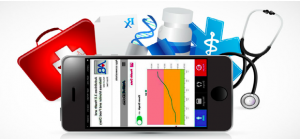The Digital Health Sector
Between 2014 and 2016, the use of digital health apps has doubled with more than 165,000 mobile apps available to consumers. With that comes the increases in the use of health wearables that has grown from 9% in 2014 to 21% in 2016.
The health sector is determined to create new solutions that will reduce healthcare costs, improve practitioner’s efficiency, improve accessibility, and empower its patients with personalized care.
However, despite the rise in interest and the growth of the digital health market, there is still minimal clinical proof to support the effectiveness of all these solutions.
There is a shortage of scientific evidence which has led to the hesitation of healthcare providers implementing their use in their practices.
Additionally, the integration of these solutions has been limited partly due to regulatory and privacy concerns.
The Barriers of Adopting Digital Health
With so many digital health solutions on the rise, it would be expected that there would be a wider implementation of them across all hospitals and by the majority of healthcare practitioners. However, this is not the case and the reasons why vary.
But one that was most common reasons highlighted is the frustration experienced by the users who do not understand how to use the app. A research revealed that seniors, despite benefitting from the technology the most, would not likely use the digital health tools simply because they were not user-friendly enough.
With digital health tools requiring manual data entry and the retrieval of data via the app, it demanded a technical understanding that was beyond the grasp of most seniors.
The proposal by researchers was to redesign the apps to have larger buttons and simpler interfaces making the user experience much more pleasant and the application easy to comprehend. An additional function would be explanations to educate the patient on the benefits of the tasks.
The Recommendation
Another study is showing that a much more successful approach would be to have a dedicated team to offer offline training on the use of the tablet and app. Such was the case with a medication adherence app where coronary heart disease patients who took part in the study.
Each patient who was personally coached on how to use the app went on to say that they preferred the app over using paper and pen to journal their progress.
Clearly, while the advances in technology are impressive, its effectiveness is only attainable through the proper instruction of its functionalities to its users. Developers of digital health tools should take into consideration how to not only make the technology user-friendly but how to easily integrate them into daily routines through preparation and instruction.





